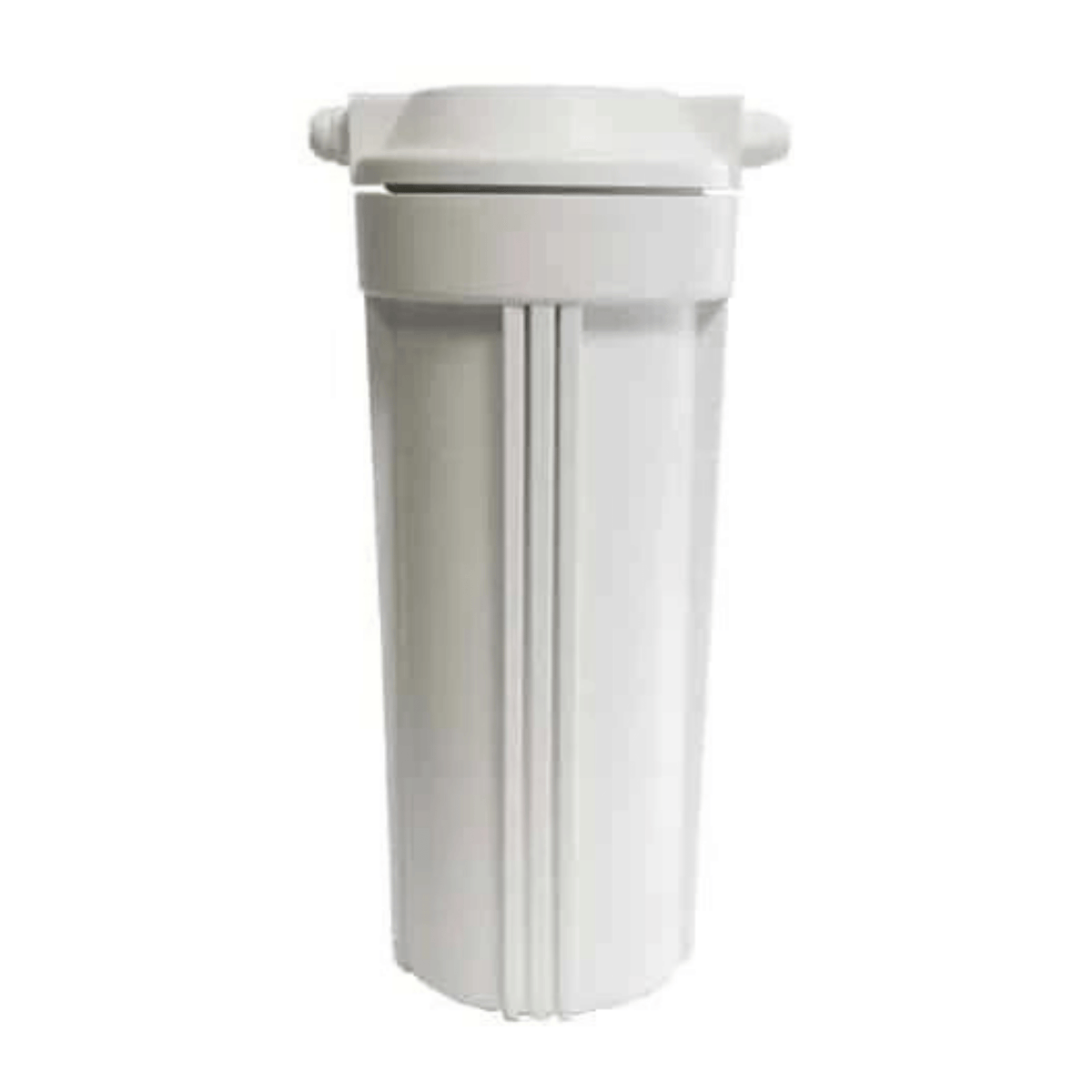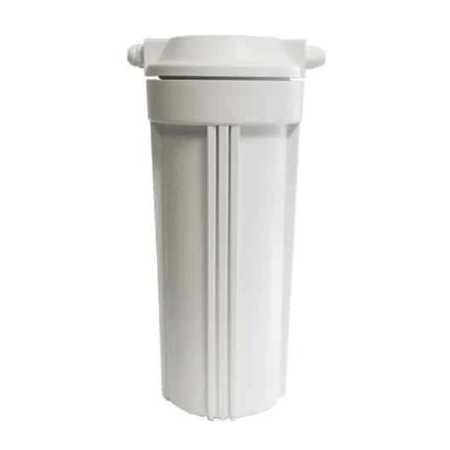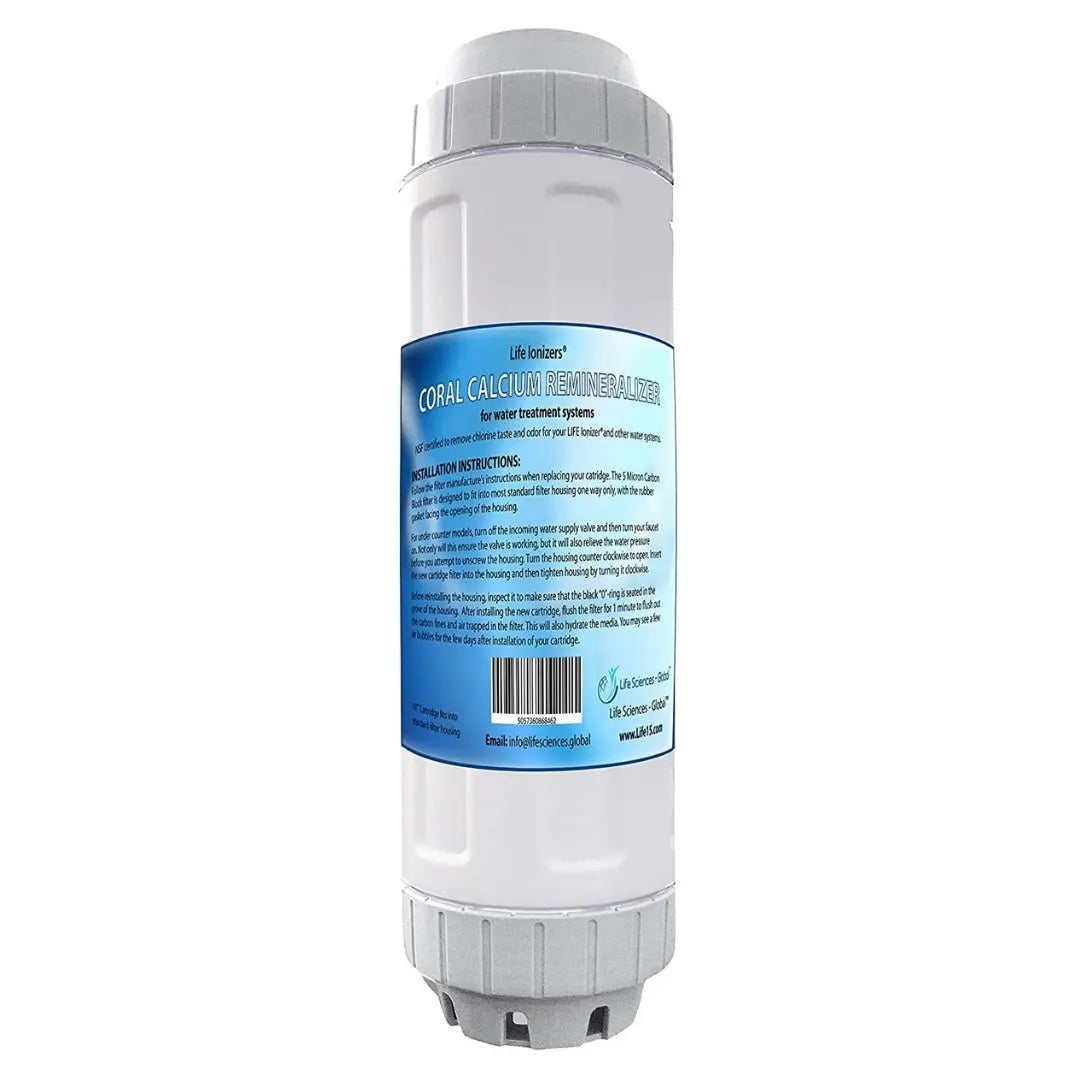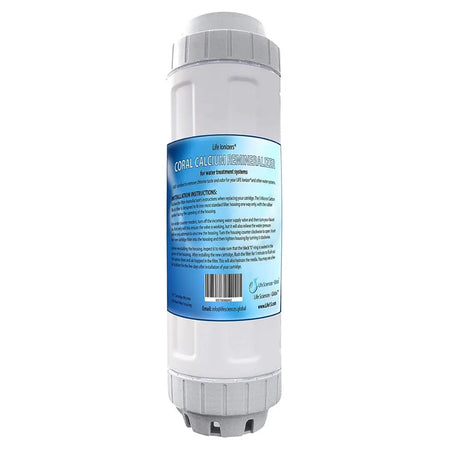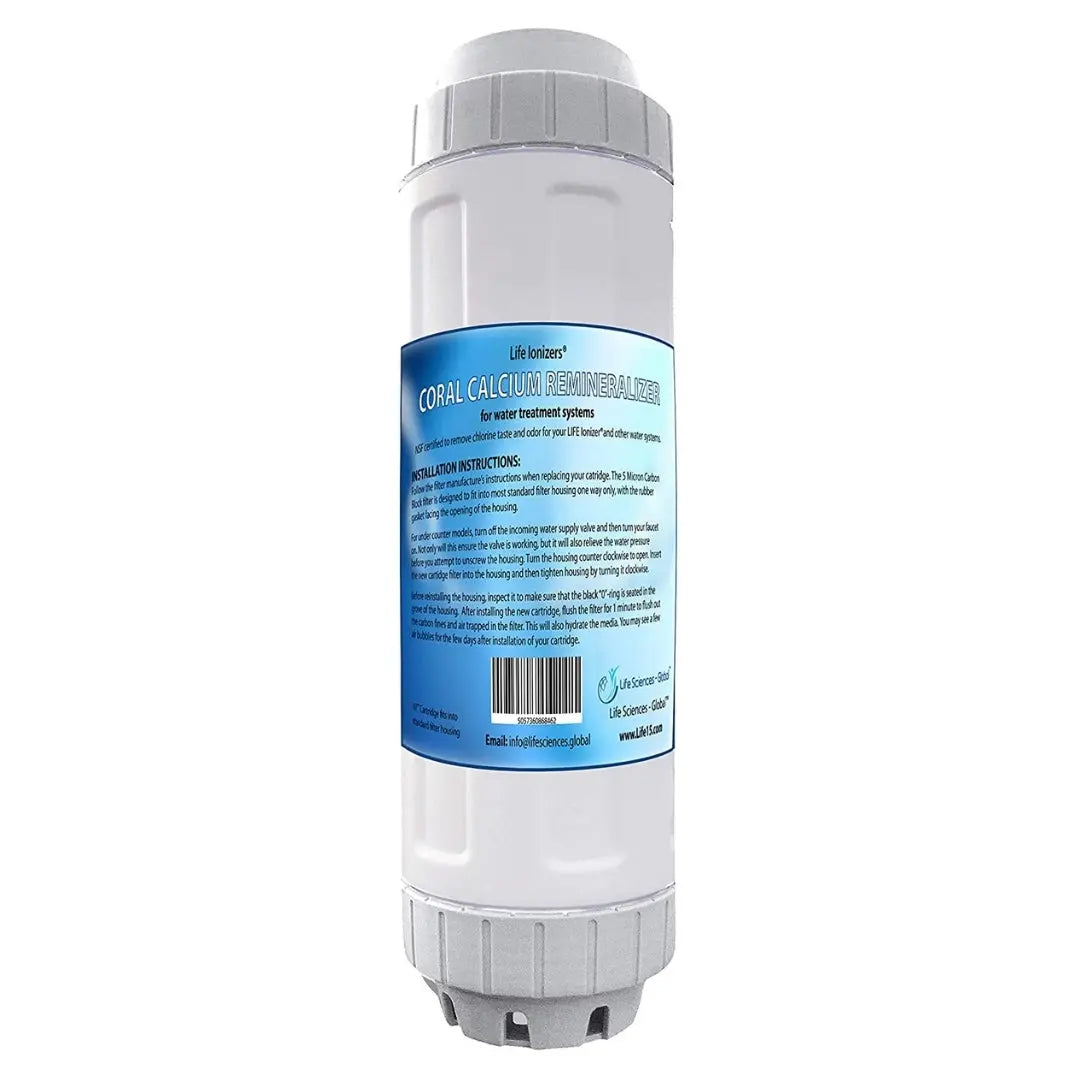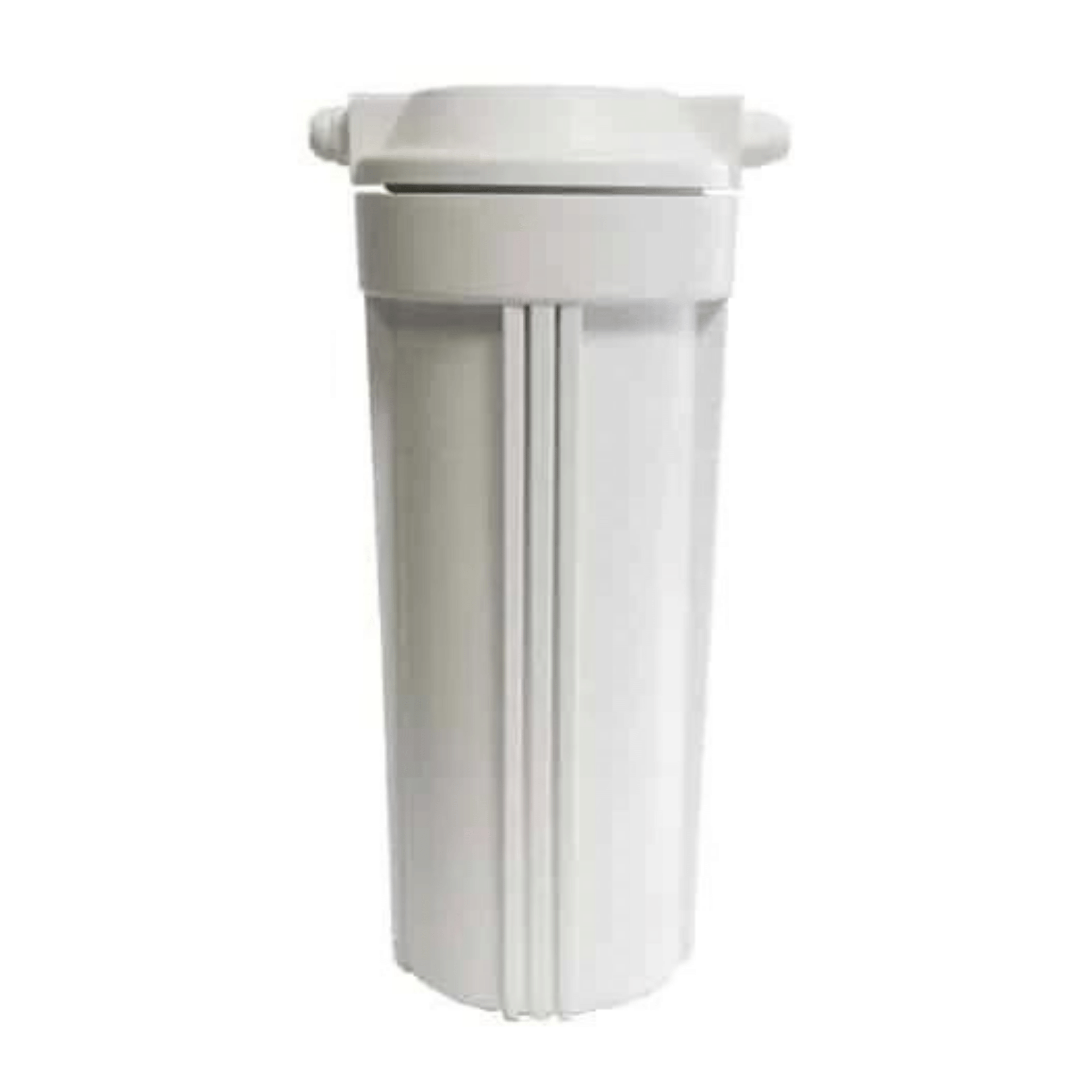Coral Calcium Remineralizer
Couldn't load pickup availability
- IMPROVE YOUR HEALTH - Delivering 73 healthy minerals into your drinking water plus coral calcium in its bio-available form.
- EASY TO USE - With a quick installation process shown in the images above you'll be drinking healthier water in no time.
- LONG LASTING - Lasts up to 12 months before replacing
- DISCRETE - Fits inside of the filter housing either on top or underneath your counter.
- OFFICIAL MANUFACTURER - Only Life sciences pre-filters like this will work with your machine
- Drinking Reverse Osmosis water is very unhealthy as it will scavenge minerals from your bones to balance out its electron-deficient water.
- This cartridge is good for 1,000 gallons of water, or 12 months, whichever comes first
We recommend you change HOUSINGS every 3 to 5 years as they become brittle from all the chemicals being filtered out of your drinking water
Why is coral calcium good to add to reverse osmosis water?
Coral calcium is a type of calcium carbonate derived from fossilized coral reefs. It contains a range of essential minerals such as calcium, magnesium, and potassium. Coral calcium is often touted as a health supplement, with claims that it can improve bone health, boost the immune system, and even prevent serious health problems. When added to reverse osmosis water, coral calcium can help to restore some of the minerals that are lost during the filtration process. Reverse osmosis is a water purification method that removes impurities by pushing water through a semipermeable membrane. While this process effectively removes contaminants and heavy metals, it also removes beneficial minerals like calcium, magnesium, and other healthy minerals.
Drinking demineralized water for prolonged periods of time may lead to mineral deficiencies, which can have negative impacts on health. By adding coral calcium to reverse osmosis water, the water is re-mineralized with essential minerals, making it more beneficial for human consumption.
What is the purpose of adding calcium to drinking water?
The purpose of adding calcium to drinking water is to increase the level of calcium in the water to a level that is beneficial for human health. Calcium is an essential mineral that is important for the growth and maintenance of strong bones and teeth, as well as for various other bodily functions such as muscle function, nerve transmission, and blood clotting. While calcium is naturally present in many foods, including dairy products, leafy greens, and nuts, some people may not consume enough calcium through their diet. In these cases, adding calcium to drinking water can be a simple and effective way to increase calcium intake. In addition, some types of water treatment processes, such as reverse osmosis and distillation, remove minerals including calcium from water. Adding calcium to treated water can help to restore some of the essential minerals that are lost during the treatment process. It's important to note that adding too much calcium to drinking water can also have negative effects, such as contributing to the formation of kidney stones. The best approach is to balance your calcium intake with magnesium. A good source for this is Life Extension The optimal level of calcium in drinking water will depend on various factors, such as age, gender, and overall health status. Consultation with a healthcare professional or a water treatment expert can help determine the appropriate level of calcium in drinking water for an individual's needs.
What minerals should I add to reverse osmosis water?
If you have a reverse osmosis (RO) water filtration system, the filtration process may remove some beneficial minerals from the water, making it demineralized. In such cases, adding some essential minerals to the RO water can improve its taste and provide some potential health benefits. Here are some minerals that can be added to reverse osmosis water and your best approach is to use a Coral Calcium
as that will have all the below minerals and many more Calcium: Calcium is an essential mineral that is important for strong bones and teeth, muscle function, nerve transmission, and blood clotting. Calcium can be added to RO water through calcium carbonate or coral calcium. Magnesium: Magnesium is another important mineral that helps to regulate muscle and nerve function, supports the immune system, and helps to maintain healthy bones. Magnesium can be added to RO water through magnesium oxide or magnesium sulfate. Potassium: Potassium is an electrolyte that helps to regulate fluid balance, muscle function, and nerve signals. Potassium can be added to RO water through potassium bicarbonate or potassium chloride.
How do you retain minerals in RO water?
Reverse osmosis (RO) is a water filtration process that removes impurities, including minerals, from water. While this process can effectively remove contaminants and heavy metals, it can also remove beneficial minerals like calcium, magnesium, and potassium. Here are some ways to retain minerals in RO water: Remineralization: Remineralization is the process of adding essential minerals back into RO water after it has been filtered. This can be done by adding mineral cartridges or filters to the RO system, which add calcium, magnesium, and other minerals back into the water. Alkaline water treatment: Alkaline water treatment involves adding alkaline minerals, such as calcium and magnesium, to the water to increase its pH level. This can help to improve the taste of the water and provide some potential health benefits. Blending with mineral-rich water: Blending RO water with mineral-rich water, such as spring water, can help to increase the mineral content of the water. This can be done by installing a blending valve that allows for controlled mixing of the two water sources. It's important to note that not all RO water systems require mineral retention. If you have a balanced diet that includes foods rich in essential minerals, you may not need to add minerals back into your RO water. It's also important to consult with a water treatment expert or healthcare professional before adding minerals back into your RO water to ensure that you are doing so in a safe and effective way.
